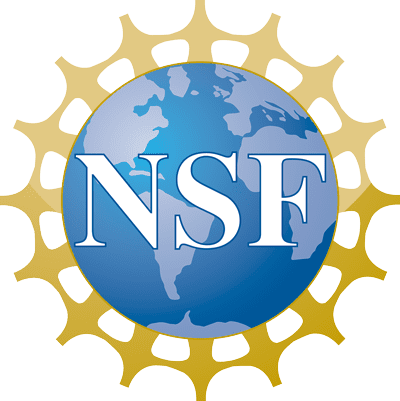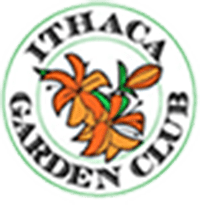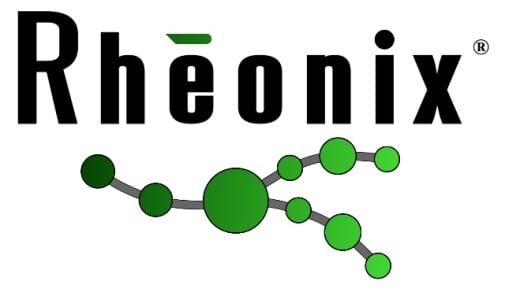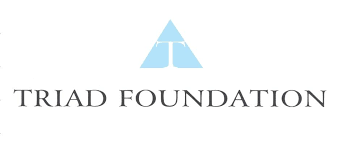While BTI & Cornell offer various projects and opportunities for undergraduates, all selected students will be considered apart of one cohort and participate in joint activities during the 10-week program. The following areas represent the general types of research offered and are all a part of the same BTI Undergraduate Application Form. We encourage applicants with multiple interests to select projects across each area.
Bioinformatics
(NSF Funded REU)
At BTI, molecular biologists and computer scientists are working together at the forefront of biological discovery to solve real world problems. With novel technologies, researchers can now access entire genome sequences, and the details of the proteome, transcriptome, and metabolome of many organisms, to better understand biological systems and interactions. Though information-rich, the size and complexity of these data sets pose new challenges for scientists and society. The growing field of bioinformatics addresses these challenges.
Bioinformatics undergraduate researchers will focus on data analysis and developing computational tools and resources to store, analyze, and integrate large-scale “omics” data sets. Students applying with interests in bioinformatics projects should have some prior experience with computer programming, and an interest in the subject. Interested undergraduate students should apply through the BTI application form and select projects within the “Bioinformatics” section.
Plant Genome Research Program
(NSF & USDA Funded REU)
Undergraduate students participate in the Plant Genome Research Program (PGRP) summer internship program and learn how basic plant research can be applied to protect the environment, enhance human health, and improve agriculture. PGRP undergraduate researchers gain knowledge of plant genomics and scientific research by working closely with their mentors, postdoctoral fellows, and graduate students in a laboratory setting. Undergraduate researchers will learn the latest molecular biology techniques and bioinformatics tools while working on a supervised, independent research project within the framework of the assigned laboratory’s research program. Interested undergraduate students should apply through the BTI application form.
Programmable Plant Systems
(NSF Funded REU with CROPPS Science and Technology Center)
The Center for Research on Programmable Plant Systems (CROPPS) unites plant scientists, engineers, computer scientists, and social scientists to develop technologies that will enable seamless, bidirectional communication between humans and plants. The relevant technologies fuse synthetic biology, nanotechnology, optics, and computing to gain access to the internal biological processes of plants and their associated organisms such as, for example, soil microbes. The Center aims for these technologies to give new access to the biological processes that connect genes to traits, to guide the process of plant selection, engineering, and editing for improved crops, and to enable sophisticated management of crops in the field for improved sustainability and productivity. Summer undergraduates in this program will be hosted and mentored by interdisciplinary teams that include expertise in both plant science and technology development. Undergraduate applicants with backgrounds in biology, engineering, or computing are encouraged to apply and should submit an application through the CROPPS REU application. Interested students may submit applications to both the CROPPS REU and Plant Genome REU program.
Internship Spotlights
Read the stories of former Boyce Thompson Institute (BTI) interns!
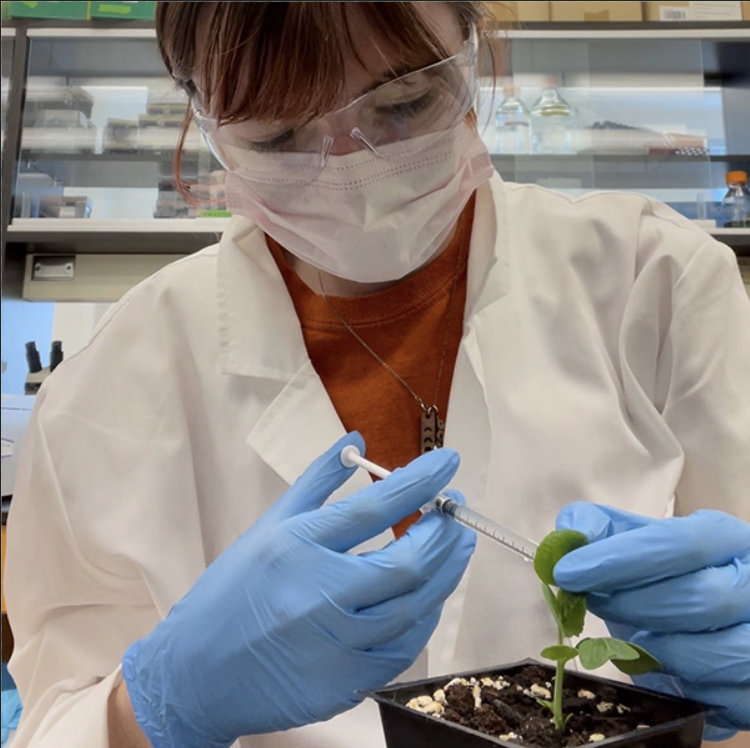
Kaitlin Marry
Kaitlin was involved in Dr. Casteel’s lab working on investigating the effects of two mosaic viruses on pea aphids, after having previously been involved in research related to plant nitrogen uptake at their home institution of New Mexico State University. Their experiences outside of the lab also left a huge impact on them. “I was able to extract honey, aid in fieldwork, and explore Canada, none of which were directly part of my research but were nonetheless fulfilling and meaningful experiences.” Kaitlin advises interested students to “take the chance and apply to the REU even if it seems intimidating… there are amazing opportunities to be had and anyone regardless of where they come from can be successful here.”
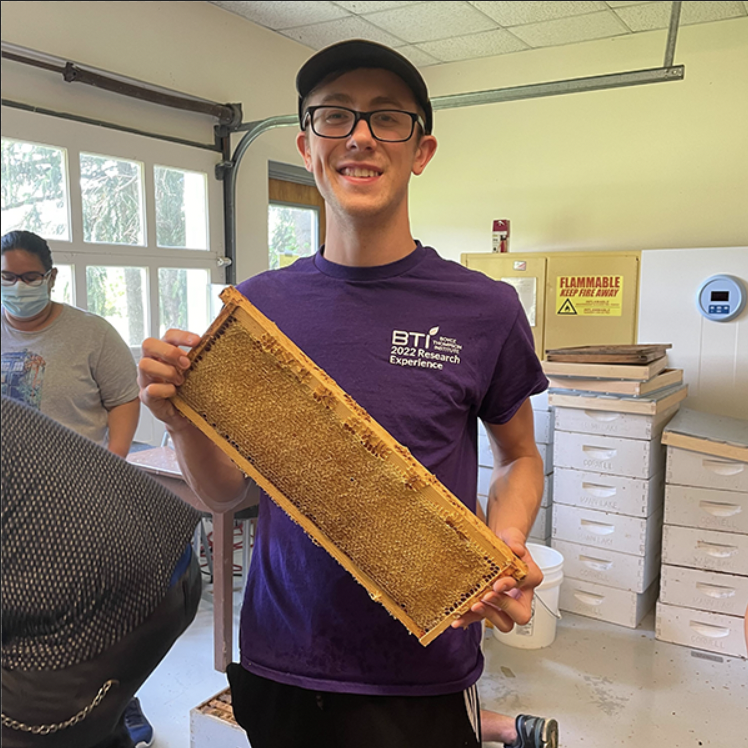
Kobe Phillips
Originally from Tampa, Florida with roots in New York, Kobe came to the REU program from the University of South Florida, and conducted research in Dr. Thaler’s lab, looking at the effects of parasitism on herbivory and chemical communication in striped cucumber beetles. Kobe was interested in learning more about how “interactions between organisms could play an important role in ecological health, and I knew the combined education from BTI and Cornell’s Department of Entomology would provide an important perspective to this inquiry.” His internship was full of learning experiences, including “being one of the only people in the world to catch a Tachinid fly parasitoid in a tube!” His advice to future students? “Never be afraid to ask questions or propose new ideas” and “check out and volunteer at the Dyce Honey Lab!”
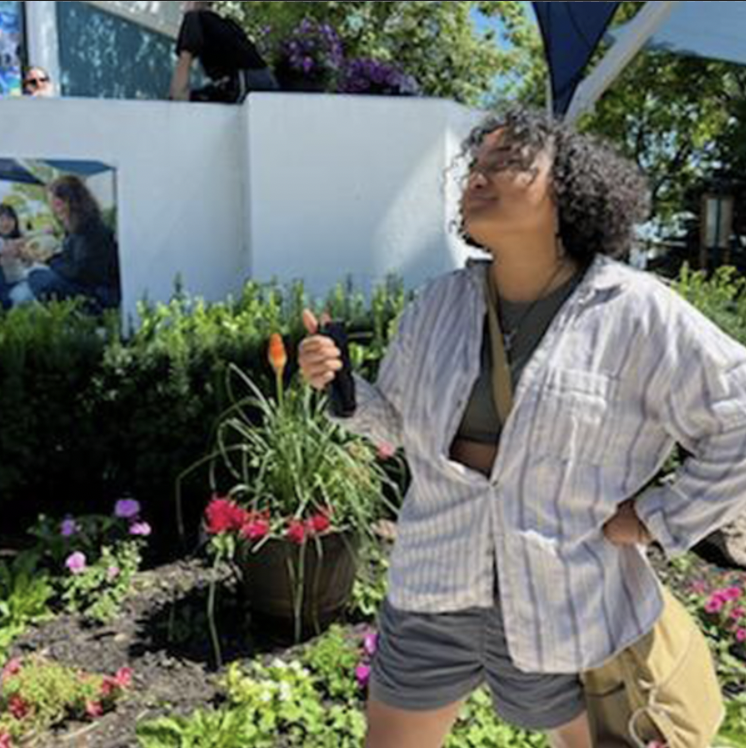
Sherlyn Contreras
Sherlyn spent the summer working in Dr. Hanson’s lab under the mentorship of Stephane Bentolila. This was one of their first experiences working within a plant science lab which was a motivating factor for applying to the REU program. Sherlyn advises future students that the program “is a time commitment but it is such a priceless opportunity.” Outside of their research, the people they met and the networks they built were some of the most impactful parts of the program. “Besides my amazing mentor and the research I conducted, the people I met this summer made this REU program remarkable…I finally had my first conversation with a Latina STEM professor. Hearing her journey of becoming a professor confirmed my own passion and excitment to become a professor.”
Internships are funded by the National Science Foundation, Research Experiences for Undergraduates Award #1358843, individual faculty grants, and the generosity of donors including the Emerson Foundation , Ithaca Garden Club, John Ben Snow, the Legacy Foundation of Tompkins County, Rheonix, Triad Foundation Inc, Yunis Realty , and many individual donors.


